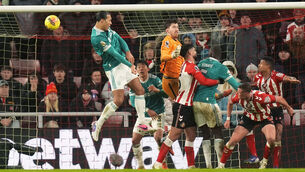Owens makes case for six-a-side and brighter future for FAI

FAI interim CEO, Gary Owens, believes the reward for pushing through with governance reforms that include the appointment of six independent directors to the board is huge and that the association should strive to become a €100m business once it's house is finally in order.
Football in Ireland finds itself at a crossroads this month. Another one.











